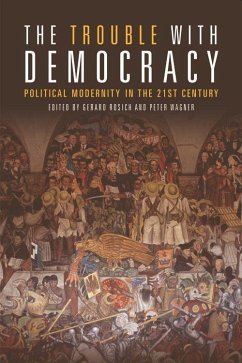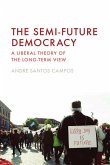Supposedly we live in an era of human rights and democracy, of incessant democratisation - this book shows why that perception is dangerously misleading Western political thought has long maintained that democracy, once achieved, is here to stay. This view appeared to be confirmed by successive 'waves of democratisation' across the world, but in truth the political situation of our time is much more ambiguous. On the one hand, the commitment to democracy seems to be more widely shared than ever. On the other, popular will has ever less impact on political decisions because of alleged constraints in an era of 'globalisation'; existing democracies suffer from a combination of technocratic governance and populist reactions; and global political communication remains far from adequately addressing urgent problems. This book assesses the political condition of our time by placing it in long-term historical context. It radically reconsiders key issues of political thought and provides a comparative exploration of current experiences of democracy in several world regions. Key Features . Provides a comprehensive critical analysis of the current state of democracy . Reviews the history of political thought by emphasising tensions and ambiguities from within the commitment to democracy . Suggests that a major political transformation is under way since the 1960s that upsets the expectation of guaranteed democratic stability . Combines critical theory, political thought and solid empirical analysis . Explicitly addresses the current relationship between North and South and broadens political theory debate about democracy by including experiences from the 'global South', including South Africa, Latin America, Argentina and Brazil Gerard Rosich, political philosopher, is Researcher at the University of Barcelona. Peter Wagner, historical sociologist and social theorist, is ICREA Research Professor at the University of Barcelona. Cover image: Murals by Diego Rivera in the National Palace © Richard I'Anson/Getty Images Cover design: [EUP logo] www.euppublishing.com
Hinweis: Dieser Artikel kann nur an eine deutsche Lieferadresse ausgeliefert werden.
Hinweis: Dieser Artikel kann nur an eine deutsche Lieferadresse ausgeliefert werden.








